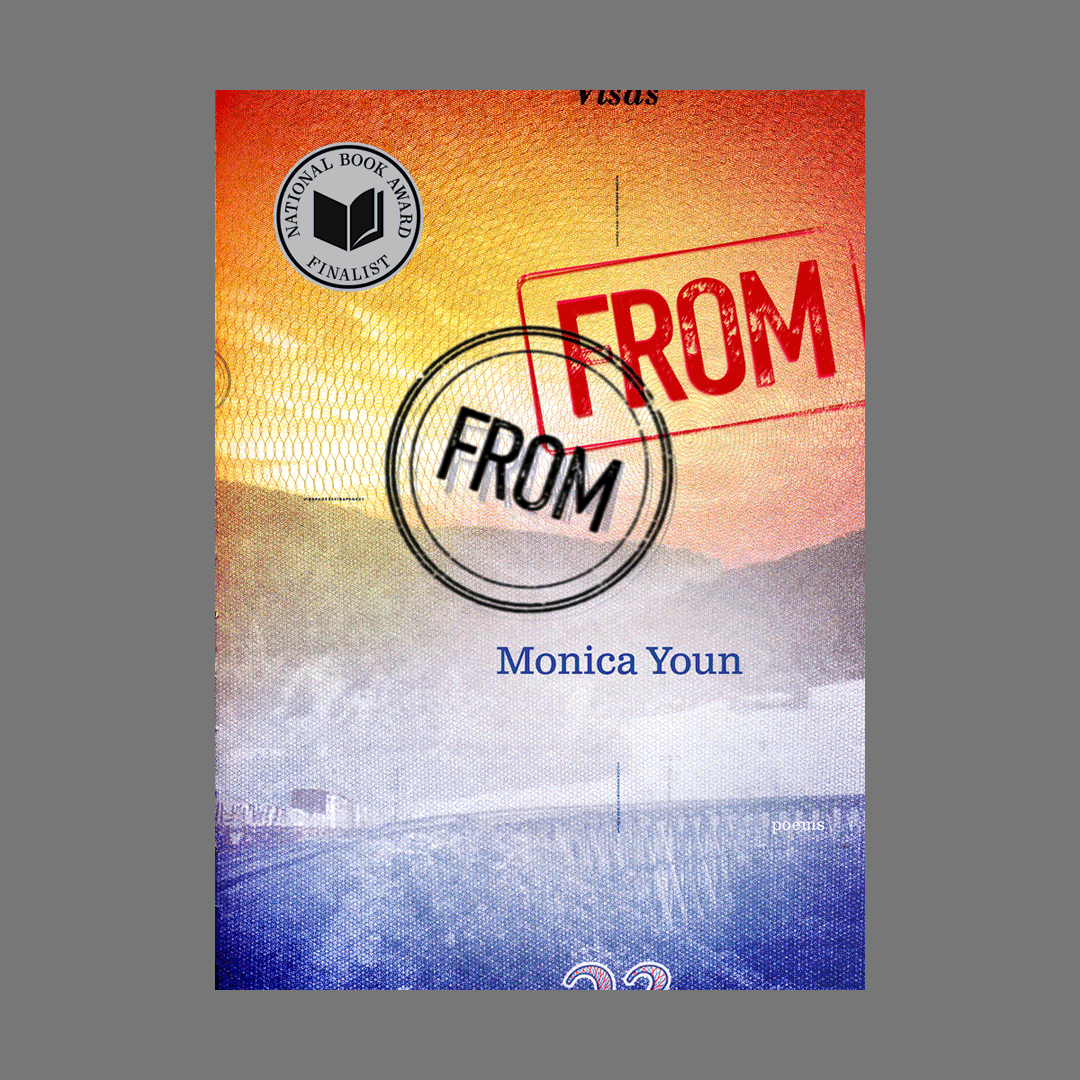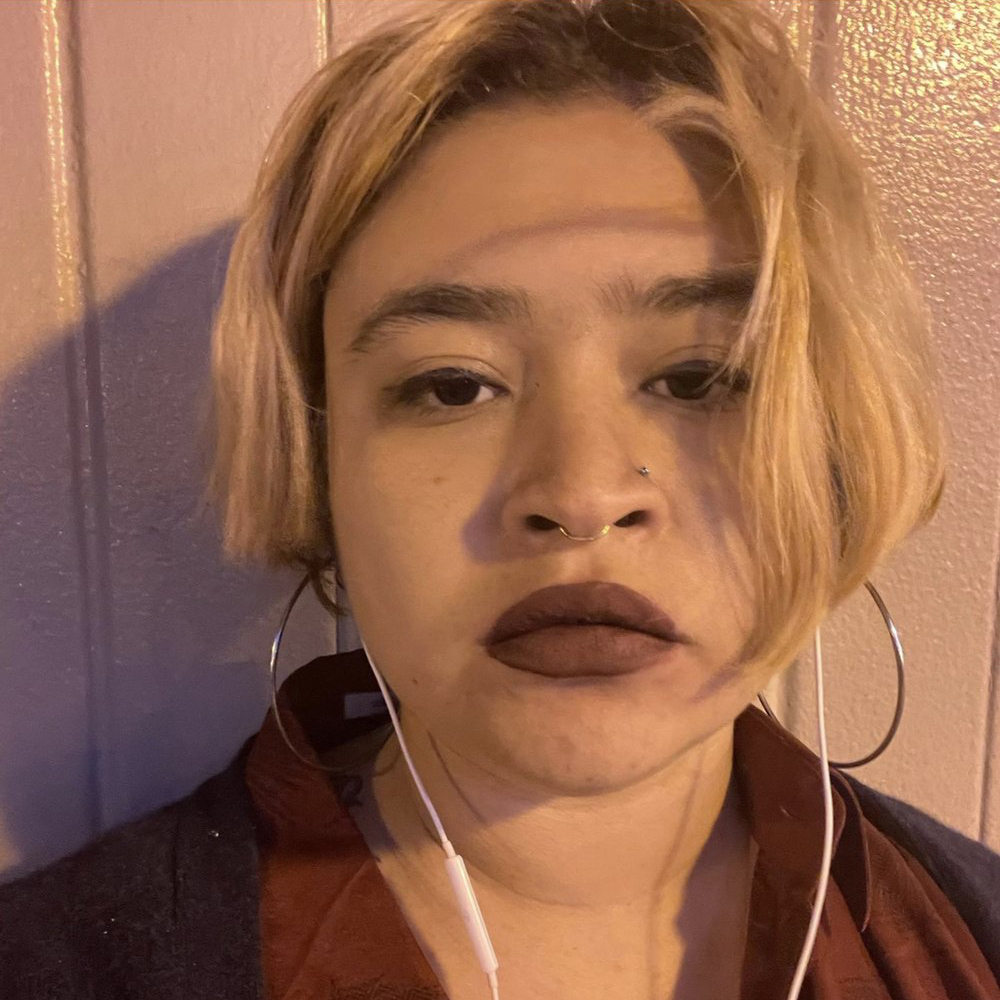USEREVIEW 142: Name the World: Asian American Poets and the Future Tense
Joanna Acevedo analyzes the grammar of hope in five recently released poetry collections by Asian American writers.
#CAROUSELreviews
#USEREVIEWEDNESDAY
“Where are you from? No, but where are you really from?” is a question that many people of colour are familiar with living in the United States, and it’s the pivotal question behind Monica Youn’s collection of poetry, From From, which came out in March 2023 from Graywolf Press. In this essay, I put it into conversation with many other influential books by Asian and Asian American authors, including Jenny Xie, Chen Chen, Chia-Lun Chang and Franny Choi, all of whom have had books released in the last year or so. Each of these poets’ collections address the problem of anti-Asian hate, and the future, in a different way — from Franny Choi’s poetry collection The World Keeps Ending, and the World Goes On (Ecco, 2022), which is an explicit manuscript to combat the apocalypse, to Jenny Xie’s more nuanced, layered exploration of the past and history of Chinese dissidents in her collection The Rupture Tense (Graywolf Press, 2022), which projects a spooky cast over the future through manipulation of tense and language. Through poetic expression, these writers are facing an uncertain future, one wracked with prejudice, climate instability and political unrest — and their different interpretations are guideposts towards a new beginning, or maybe just lanterns in the dark.
In The World Keeps Ending, The World Goes On, Choi makes an assertion about the linguistic implications of grief, playing with language in a way that is ironic, repetitive and almost singsong in its presentation. In the poem ‘Grief Is A Thing With Tense Issues’ she says:
They’ll say: What was it like to have so many people on Earth at once?
They won’t say that, but I’ll answer anyway:
It was very busy. There was always something to avoid.
This quote shows us Choi’s playful side, but also her exhaustion with the world at large. Using language as a method of entry, she interrogates the negative aspects of our culture. This is remarkably similar to the assertions that Xie makes in The Rupture Tense, where the present and past tense are ripped apart and put back together again. Xie says in ‘1968 Stethoscope’:
To act in the present tense, thoughts few.
One wild creature has more freedom
than a hundred thousand of you.
In The Rupture Tense, the past and present tense are a way of thinking about the world. In ‘Misconjugate,’ Xie says:
My present tenses are just basins
where endings approach room temperature.
In both examples, language is the vehicle by which emotion is moved. Choi agrees that, while grieving, we all have problems talking about the dead — we slip from present to past tense, unable to talk about the subject of our grief in a natural, comfortable way — and Xie speaks about the present tense as being something which has an ending. The future, as both poets see it, is a function of tense, and also a function of language; the way we speak about the future is the way we create it. This is not a new idea. Xie’s work is mostly focused on the past; learning about the future through the mistakes of others. Much of her writing looks at actual history, and its direct implications on our current world. Choi looks forward — taking the present tense and moulding it into something we can look through, like a looking glass, or a mirror. Employing irony, Choi allows us to see ourselves through the present, and rather than learning from the past, we plow endlessly forward, hoping that there will be a lesson — but not expecting one.
Chen Chen’s uproarious collection, Your Emergency Contact Has Experienced An Emergency, which came out in the fall of 2022 from BOA Editions, is also engaged with similar questions. In terms of language, Chen considers both Chinese and English as he deals with how to be Asian American, queer and a writer in the United States. In the sequence, ‘a small book of questions: chapter i’ he notes:
In Chinese, there are no definite articles, no “the.” I’m not sure if there is an explanation for my mother’s misuse of or lack of “on.” Sometimes I have no idea which one to use: “on” or “in.” Place your hope on. Place your hope in. When I search online, most of the sites that appear in the results have to do with passages from the Bible. Place your hope in God. On God. Though I don’t believe in him, it seems rude to place anything on God, even hope. I imagine God,
sitting in heaven, weighed down by all the weighty abstractions people continue to place on him. Hope, immortality, truth, goodness, forgiveness, perfect love. Perfect speech.
While not specifically about tense, this is the same kind of question that Xie and Choi are working through and towards. Chen is concerned with the implications that language can make. Language can bring us into so many different spaces — political, academic, cultural, religious — and Chen is aware of this as he writes with humour and candour. As he tackles overarching themes like queerness and race, hopefulness, and its various offshoots, remains a major theme of his collection. Choi comments in ‘Dispatches From A Future Great-Great-Granddaughter,’ that “We’re surviving, though it’s true / we don’t know what that means exactly.” Chen’s version of God, similar to Choi’s cynical great-great-granddaughter, is a symbol for all the ideas that human beings push forth when they think about what comes next. By subverting language (‘on’ versus ‘in’), Chen is playing with our ideas of God, as someone who takes in our worries, or someone we simply place them upon, someone who could become weighted down, even someone mortal.
Monica Youn’s From From is powerful from start to finish, but never so powerful as when she turns from the experimental to the confessional, as in the later sections of the book. In the section, ‘In The Passive Voice,’ she says:
And it turns out that the Cherokee County sheriff’s captain who has been speaking for the police department has been promoting anti-Chinese T-shirts on Facebook: “COVID 19 imported virus from Chy-na.” I don’t understand the misspelling of China. Understanding it holds little interest for me. The cool sharpness of her delivery balances well with the horror of the words she writes. The entire section is a collection of examples of racism, anti-Asian hate and other prejudices, coupled with explorations of various personal and confessional subjects. “Destruction is just a more wasteful, and therefore decadent, form of consumption,” she says later in the section — but destruction is clearly what she has set out to do — dismantling existing power structures with her words, indicting those who have caused race-based violence. There is nothing passive about this voice, although it maintains a smooth dignity throughout the section. Like Xie, Chen and Choi, Youn has chosen language as her tool to engage with themes that trouble her. The supposed passivity of the voice is almost like an Easter egg — by writing such a strong, aggressive treatise, Youn is not being passive at all, even if her language maintains a distance.
Chia-Lun Chang, in her bombastic debut collection Prescribee, which came out in November 2022 from Nightboat Books, ruthlessly describes the experience of a Tawainese immigrant to the United States. She interrogates masculinity and wound-dwelling in her poem, ‘The Photographer Took My Photo And Claimed I’m The Immigrant Dwelling [in his essential project]’ saying:
I requested of him,
Sir, I no longer want to participate since it’s dangerous to expose my condition. The butterfly net in the same position as the camera blocks your view. Look out! The ladybug perched on my face is alive & not for catching.
This male American photographer wouldn’t let me withdraw
due to a previous misconception
he grasped my legs and complimented his exotic ex-wife casually
I emphasized,
I rebuff to sell my wounds or I shall be the seller who
sets a price.
Chang asserts that her wounds are hers alone, and she will sell them on her own terms, not for a man who claims them as his own. Even the title of her collection, Prescribee, denotes a passivity; she is the one for whom something has been prescribed, she is what is being acted upon. But the poem is in direct conflict with that conception. Later in this same poem, Chang claims that “Everybody is invited to the exhibition,” implying that she has lost this argument with the male American photographer. The present tense of this line invites us to imagine that it is an ongoing project, that she is continuously reinventing herself. Like Youn, Chang has taken it upon herself to tell her own story, and the strength of her wordplay allows us a window into her intent. She has indeed set the price.
Each of these poets have a different way of handling questions about the future. Chang writes about belonging, or assimilation, as a way to move forward — her poems frequently engage with exoticism or feeling alienated, both from and by language, but also from other people, a natural extension of immigration and experimentation with the English language. She writes in the present tense, which brings an immediacy to her work — the future is something that is coming, whether she likes it or not. Xie works more delicately with the actual tenses, the pieces of the words, and her subject matter is the past. Her writing is extremely precise; each line and word feels intentional and carefully chosen. Often, it seems as if she hopes to find some clues about the future in the mystical elements of what has come before. Alternatively, Choi takes on the apocalypse head-on, unafraid.
Linguistically, these are very different poets. But what they have in common is an interest in language, in the way that language can be manipulated to have larger implications for the way we communicate, how we engage with the past and how the past informs the present. As Xie uses the present tense to imply the sloughing off of a future self, Chen wonders about a weighed-down version of God, tired of humans and their problems. What does the future hold, for poets, for language, for humanity? It’s unclear. But the answers remain in between the lines of these poems, just past the horizon, in the murky dark.

Monica Youn’s From From (Graywolf Press, 2023)
ISBN 978-1-64445-221-9 | 160 pp | $17.00 USD — BUY Here
Franny Choi’s The World Keeps Ending, and the World Goes On (Ecco / HarperCollins, 2022)
ISBN 978-0-06324-009-4 | 144 pp | $17.99 CAD — BUY Here
Jenny Xie’s The Rupture Tense (Graywolf Press, 2022)
ISBN 978-1-64445-201-1 | 120=8 pp | $17.00 USD — BUY Here
Chen Chen’s Your Emergency Contact Has Experienced an Emergency (BOA Editions, 2022)
ISBN 978-1-95077-469-2 | 112 pp | $24.00 USD— BUY Here
Chia-Lun Chang’s Prescribee (Nightboat Books, 2022)
ISBN 978-1-64362-151-7 | 88 pp | $17.95 USD — BUY Here


